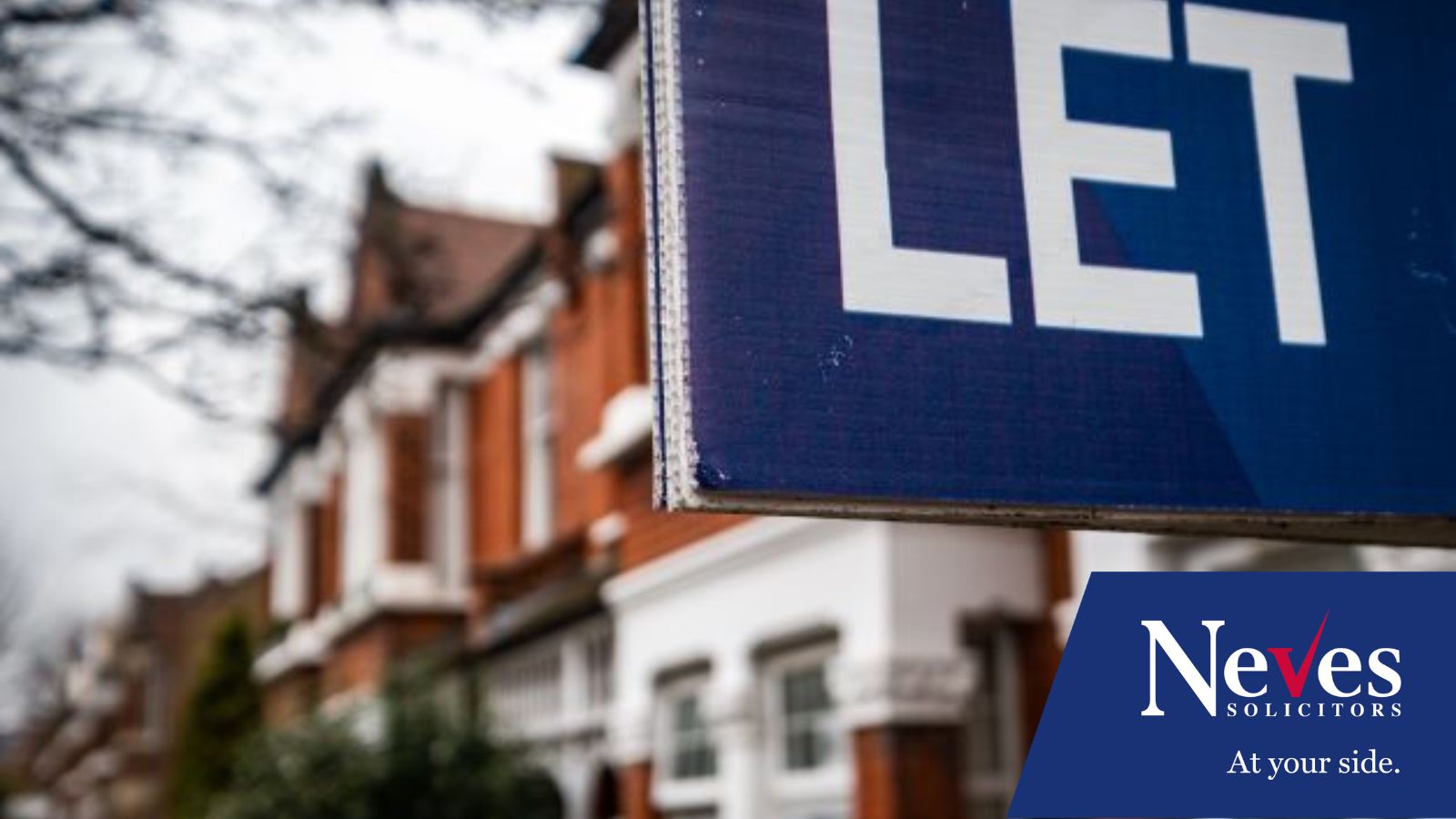

The Renter Reform Bill: Change is coming for landlords and tenants
Blogs
Dispute resolution solicitor, Saqib Khan, outlines the proposals in the New Renters’ Reform Bill.
The government has confirmed plans to proceed with the New Renters’ Reform Bill announced last year. The new Bill proposes to make significant changes to the current regime governed by The Housing Act 1988, including proposals to abolish the well known and commonly used “Section 21” Notice.
The new Bill is being proposed to reflect the government’s commitment to improving housing quality, providing support to the increasing cost of living pressures, to tackle the ongoing issues of unfair eviction and rent increases.
What are the new Proposals?
Full details of the proposed plans can be found in the government white paper A Fairer Private Rented Sector which was published in June 2022. This article aims to cover the main proposals to include:
• Proposals to abolish the Section 21 “no fault” eviction notice
• New grounds to be implemented under the Section 8 procedure
• All tenancies to become periodic
• Introduction of a new ombudsman
• Rights to keep pets
Proposals to abolish the Section 21 Eviction Notice
The Section 21 Notice, commonly referred to as the “no fault” notice will be abolished entirely. As a result, landlords will need to provide a reasonable cause to evict tenants. The reasonable circumstances will be defined by law. Under the current procedure, landlords do not need to provide any reason at all, hence the name “no fault”. The implementation of the abolishment seeks to provide for a better housing market, prevent unjustly evictions and to reduce homelessness.
New grounds under the Section 8 procedure.
Three new mandatory grounds are to be implemented under the current Section 8 procedure to include:
• Repeated serious rent arrears
• Landlords wishing to sell their property
• Landlords who wish to move into the property or allow for families to do so
In addition, the notice period under the current rent arrears mandatory ground (ground 8) will increase to 4 weeks.
Periodic Tenancy Agreements
Tenants currently subject to an Assured Tenancy, Assured Shorthold Tenancy or are in a Periodic Tenancy will automatically migrate to a new system of periodic tenancies.
Tenants will be required to provide two months’ notice to their respective landlords in order to terminate the tenancy.
New Ombudsman
The government is seeking to establish a government approved ombudsman to regulate the private rented sector in England. All privately rented properties will be governed by the ombudsman, regardless of whether they are managed by letting agents.
The ombudsman will have the power and responsibility to assist tenants in various circumstances such as requiring the landlord to take remedial action, provide information and even pay compensation. The ombudsman will also have the power to request for the landlord to reimburse the tenant in cases where “service or standard of property they provide falls short of the mark”.
Right to Keep Pets
The government intends to provide legislative provisions to prevent landlords from unreasonably withholding consent to a tenant’s request to keep pets in the property. The legislation will allow tenants to challenge the landlord’s decision if they feel the landlord has not provided a justifiable reason as to why a tenant cannot have a pet in the property.
To ensure the property is adequately protected, the landlord will be able to require the tenant to put in place pet insurance in the event that damage is caused to the property.
Need advice on a landlord and tenant matter?
For advice on landlord and tenant or other property related matters contact the Neves Solicitors Dispute Resolution team. Call 0330 0945 500 or email info@nevesllp.co.uk









